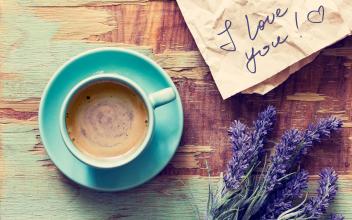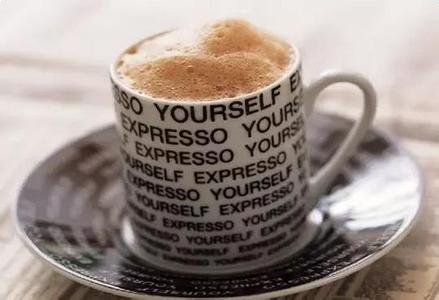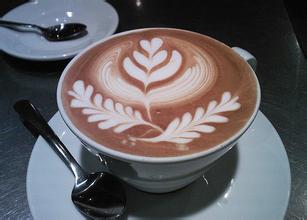Introduction to the characteristics of high-quality coffee beans with coffee flavor and taste in Silver Mountain Manor, Jamaica
In 1670, according to the Madrid Treaty, Spain formally ceded Jamaica and other places to Britain, and the British immediately used the island of Jamaica as a base for their acts of piracy. Before the earthquake destroyed the port of Loire in 1692, it once became the "capital" of Caribbean pirates. Since then, the British built the city of Kingston and gradually built it into the central city of Jamaica, located in the northwest of the Caribbean Sea, located at 17.42 degrees north latitude 18.31 degrees north longitude 76.11 degrees to 78.22 degrees west longitude, an island nation. [1] the island of Jamaica is 234km long from east to west and 82km wide from north to south, with a territorial area of 11420 square kilometers, of which the land area is 10991 square kilometers. To the east across the Strait of Jamaica, facing Haiti, about 140 kilometers north of Cuba. It is the third largest island in the Caribbean, with a coastline of 1220 kilometers. Jamaica ranks third in the West Indies after Cuba and Haiti and Kingston is also a tourist resort. It is located at the southwest foot of Lanshan, the highest peak on the island in the southeast coast bay, and there is a fertile Guaneya plain nearby. The area (including the suburbs) is about 500square kilometers, with a population of 970000. It is like spring all the year round, and the temperature is often between 23 and 29 degrees Celsius. The city is surrounded by green hills and peaks on three sides, blue waves and picturesque scenery on one side, and the reputation of "queen of the Caribbean city". The Jamaican judicial system is modeled on the British judicial system, there are the Court of Appeal, the Supreme Court, the Court of first instance and various special courts, and the Privy Council of the United Kingdom is the judicial body of final appeal. The presidents of each house are nominated by the Prime Minister and appointed by the Governor with the consent of the opposition for an unlimited term of office. The President of the Court of Appeal, Seymour Penton (Seymour PANTON), took office in July 2007. President of the Supreme Court Zara McCara (Zaila MCCALLA), inaugurated in June 2007
Jamaica Jamaica Blue Mountain Coffee almost everyone who has heard of Jamaica Blue Mountain coffee knows that it is the most expensive coffee in the world. But not everyone knows why. Like Rolls-Royce cars and Stradivari violins (Stradivarius Violin), when something gains the reputation of "the best in the world", that reputation makes almost anyone who has heard of Jamaican Jamaica Blue Monuntain coffee know that it is the most expensive coffee in the world. But not everyone knows why. Like Rolls-Royce cars and Stradivari violins, when something gains the reputation of "the best in the world", that reputation often makes it its own character and becomes an eternal myth.
It is necessary to carefully understand the myth of Blue Mountain Coffee, because the image of the past is often inconsistent with the reality of today. In 1725, Sir Nicholas Sir Nincholas Lawes brought the first blue mountain coffee trees from Martinique to Jamaica and planted them in St. Andrew) region. Today, St Andrews is still one of the top three producers of Blue Mountain Coffee, while the other two are Portland and St. Thomas) origin. In eight years, Jamaica exported more than 375 tons of pure coffee. In 1932, coffee production reached its peak and more than 15000 tons of coffee was harvested.
However, by 1948, the quality of coffee had declined and Canadian buyers refused to renew their contracts, so the Government of Jamaica established the Coffee Industry Committee to save the fate of top coffee, and by 1969 the situation had improved. because the use of Japanese loans to improve the quality of production, thereby ensuring the market. Even in 1969, Japanese coffee drinkers were willing to insure the coffee. By now, this kind of coffee has reached the point of being feverishly loved.
By 1981, about 1500 hectares of land in Jamaica had been reclaimed for coffee cultivation, followed by investment in another 6000 hectares of coffee land. In fact, today's Blue Mountain area is a small area with a planting area of only 6000 hectares, and it is impossible to grow all the coffee marked "Blue Mountain" there. Another 12000 hectares of land is used to grow two other types of coffee (non-Blue Mountain Coffee): Alpine Top Coffee (High Monuntain Supreme) and Jamaican Premium Coffee (Prime Washed Jamaican).
Blue Mountain Coffee is one of the most advantageous coffee growing conditions in the world. Jamaica's weather, geological structure and topography provide a unique ideal place. The ridge that runs through Jamaica extends to the eastern part of the island, with the Blue Mountains rising to more than 2100 meters. Cool weather, foggy, frequent precipitation, use this rich soil Rain Water to reconcile. Here, a mixed planting method is used to plant coffee trees to accompany banana trees and avocado trees on terraces.

Important Notice :
前街咖啡 FrontStreet Coffee has moved to new addredd:
FrontStreet Coffee Address: 315,Donghua East Road,GuangZhou
Tel:020 38364473
- Prev

Introduction to the flavor and taste of Jamaica's Atlanta Manor Coffee with fruity and sour taste
The Jamaican judicial system is modelled on the British judicial system, with the Court of Appeal, the Supreme Court, the Court of first instance and various specialized courts, and the Privy Council of the United Kingdom as the judicial body of final appeal. The presidents of each house are nominated by the Prime Minister and appointed by the Governor with the consent of the opposition for an unlimited term of office. The President of the Court of Appeal, Seymour Panton (Seymour PANTON), took office in July 2007. The President of the Supreme Court, Zara McCard.
- Next

Introduction to the characteristics of Coffee Flavor and taste in Cliff Manor, Jamaica
The air in the city is fresh, the roads are clean, and there are palm trees and bright flowers on the side of the road. There are not many large buildings in the urban area except government agencies. Shops, cinemas, hotels, etc., are concentrated in the middle of Bethinos Street. There is a wide range in the city center.
Related
- Does Rose Summer choose Blue, Green or Red? Detailed explanation of Rose Summer Coffee plots and Classification in Panamanian Jade Manor
- What is the difference between the origin, producing area, processing plant, cooperative and manor of coffee beans?
- How fine does the espresso powder fit? how to grind the espresso?
- Sca coffee roasting degree color card coffee roasting degree 8 roasting color values what do you mean?
- The practice of lattes: how to make lattes at home
- Introduction to Indonesian Fine Coffee beans-- Java Coffee producing area of Indonesian Arabica Coffee
- How much will the flavor of light and medium roasted rose summer be expressed? What baking level is rose summer suitable for?
- Introduction to the characteristics of washing, sun-drying or wet-planing coffee commonly used in Mantenin, Indonesia
- Price characteristics of Arabica Coffee Bean Starbucks introduction to Manning Coffee Bean Taste producing area Variety Manor
- What is the authentic Yega flavor? What are the flavor characteristics of the really excellent Yejasuffi coffee beans?

